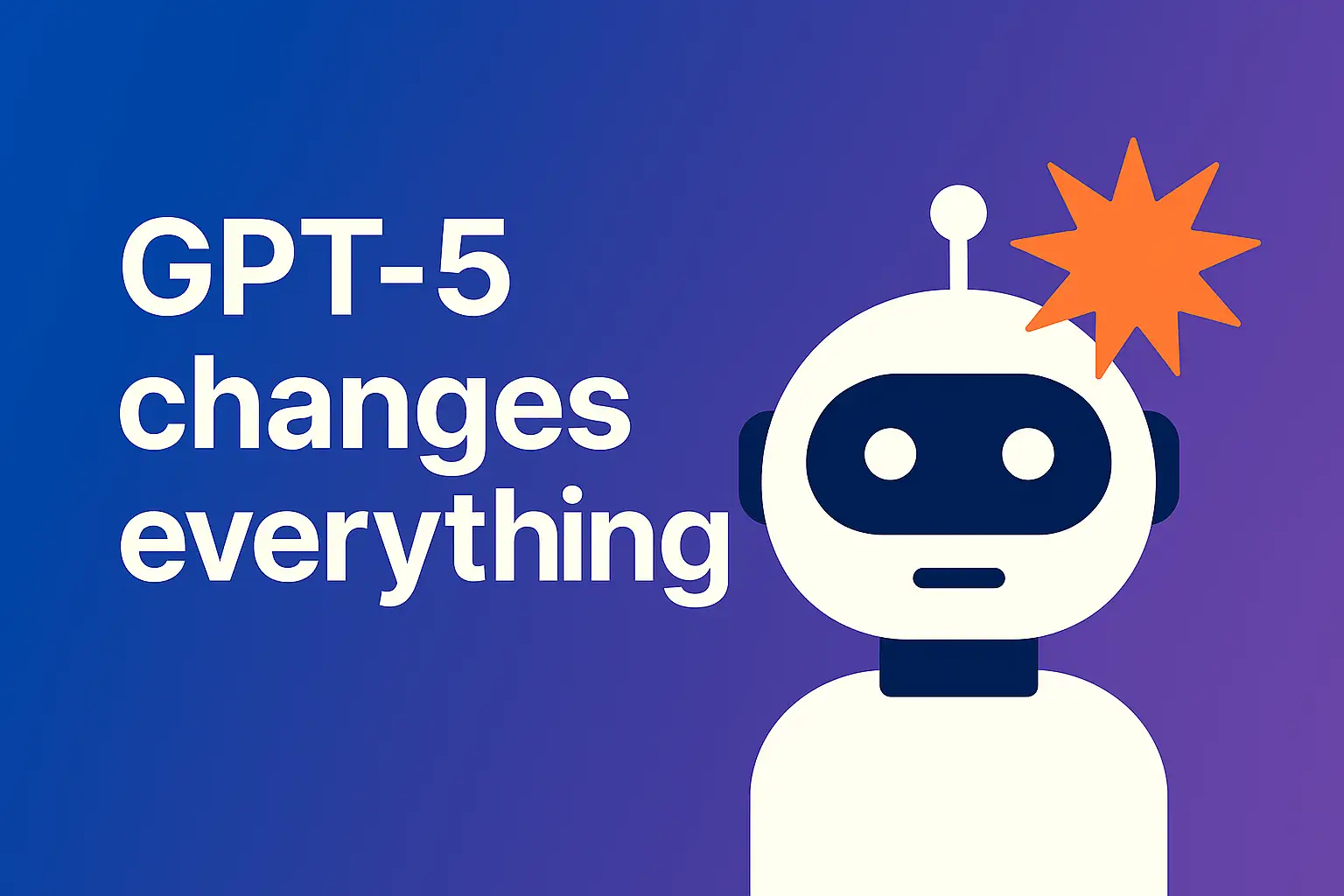
GPT-5: Shaping the Future of AI
GPT-5, the latest artificial intelligence model from OpenAI, is set to revolutionize the AI landscape with its groundbreaking capabilities. This article explores the key features of GPT-5, its potential impact on businesses, ethical considerations, and the future of AI. Let's delve into the world of this cutting-edge technology and its implications:
- Unlocking the Future: An Introduction to GPT-5
- What's New? Key Features and Improvements in GPT-5
- The Business Impact: How GPT-5 Can Transform Your Organization
- Navigating Challenges: Ethical Considerations and Risks of AI
- Looking Ahead: The Future of AI with GPT-5 and Beyond
As we look to the future, GPT-5 is expected to bring significant advancements in AI capabilities. Some experts claim that GPT-5 could be a step towards Artificial General Intelligence (AGI), showcasing enhanced critical thinking skills that more closely mimic human reasoning. By 2025, we may see a shift towards "agentic" AI systems that can act autonomously to complete tasks, rather than simply answering questions. This evolution could lead to AI becoming an integral part of decision-making processes in both government and corporate settings.
- Unlocking the Future: An Introduction to GPT-5
- What's New? Key Features and Improvements in GPT-5
- The Business Impact: How GPT-5 Can Transform Your Organization
- Navigating Challenges: Ethical Considerations and Risks of AI
- Looking Ahead: The Future of AI with GPT-5 and Beyond
Unlocking the Future: An Introduction to GPT-5
GPT-5, the latest artificial intelligence model from OpenAI, is poised to revolutionize the AI landscape with its groundbreaking capabilities. Unveiled just three days ago, this new iteration boasts significant improvements over its predecessor, GPT-4, and is already being hailed as a major step forward in the field of AI. One of the most notable advancements in GPT-5 is its enhanced ability to reduce hallucinations, improve instruction following, and minimize sycophancy. This means that the AI is now more reliable and accurate in its responses, making it an invaluable tool for businesses and individuals alike. GPT-5's capabilities extend far beyond simple text generation. It has shown remarkable proficiency in coding and agentic tasks, with the ability to produce high-quality code and generate front-end UI with minimal prompting. This advancement could potentially transform the software development industry, making it faster and more accessible to non-programmers. The model's intelligence has been likened to that of a PhD-level expert, showcasing its ability to provide in-depth knowledge across various domains. This level of expertise makes GPT-5 a powerful tool for research, analysis, and problem-solving in complex fields.What's New? Key Features and Improvements in GPT-5
GPT-5 brings significant advancements in accuracy, reasoning abilities, and overall performance. Here are some key features and improvements:- Enhanced Accuracy: GPT-5 demonstrates a 45% reduction in factual errors compared to GPT-4 and a sixfold improvement over earlier models.
- Advanced Reasoning Capabilities: The model introduces a deeper reasoning system called "GPT-5 thinking," which significantly boosts its problem-solving abilities.
- Multimodal Abilities: GPT-5 can now interpret and process images, audio, and complex instructions with greater accuracy.
- Improved Efficiency: The model requires approximately half the output tokens needed by earlier models for similar tasks.
- Benchmark Performance: GPT-5 has set new records across multiple benchmark categories, scoring 84.2% on MMMU (college-level visual reasoning) and 78.4% on MMMU-Pro (graduate-level).
The Business Impact: How GPT-5 Can Transform Your Organization
GPT-5 offers unprecedented opportunities for productivity enhancement, improved customer service, and data-driven decision-making. Here's how it can transform your organization:- Enhanced Productivity: GPT-5 streamlines content creation and integrates real-time data, significantly boosting executive productivity.
- Improved Customer Service: GPT-5 supports autonomous customer service AI agents, enhancing workflow and improving customer interactions.
- Data Analysis and Decision Support: GPT-5 assists in decision-making by processing large volumes of data and providing actionable insights.
- Automation of Routine Tasks: GPT-5 elevates developer productivity by automating routine tasks such as building prototypes and analyzing data.
Navigating Challenges: Ethical Considerations and Risks of AI
As AI systems like GPT-5 become more advanced, ethical considerations and responsible AI practices become increasingly important. Key concerns include:- Bias in AI systems: Issues of responsibility, inclusion, social cohesion, autonomy, safety, bias, accountability, and environmental impacts are significant concerns.
- Data privacy and security: Cybersecurity threats and data privacy issues are among the top AI risks.
- Job displacement: Managers need to consider the impact on employees and develop strategies for reskilling and redeployment.
- Transparency and accountability: Ensuring AI operations remain understandable and accountable to human oversight is crucial.
Looking Ahead: The Future of AI with GPT-5 and Beyond
As we look to the future, GPT-5 is expected to bring significant advancements in AI capabilities. Some experts claim that GPT-5 could be a step towards Artificial General Intelligence (AGI), showcasing enhanced critical thinking skills that more closely mimic human reasoning. By 2025, we may see a shift towards "agentic" AI systems that can act autonomously to complete tasks, rather than simply answering questions. This evolution could lead to AI becoming an integral part of decision-making processes in both government and corporate settings.